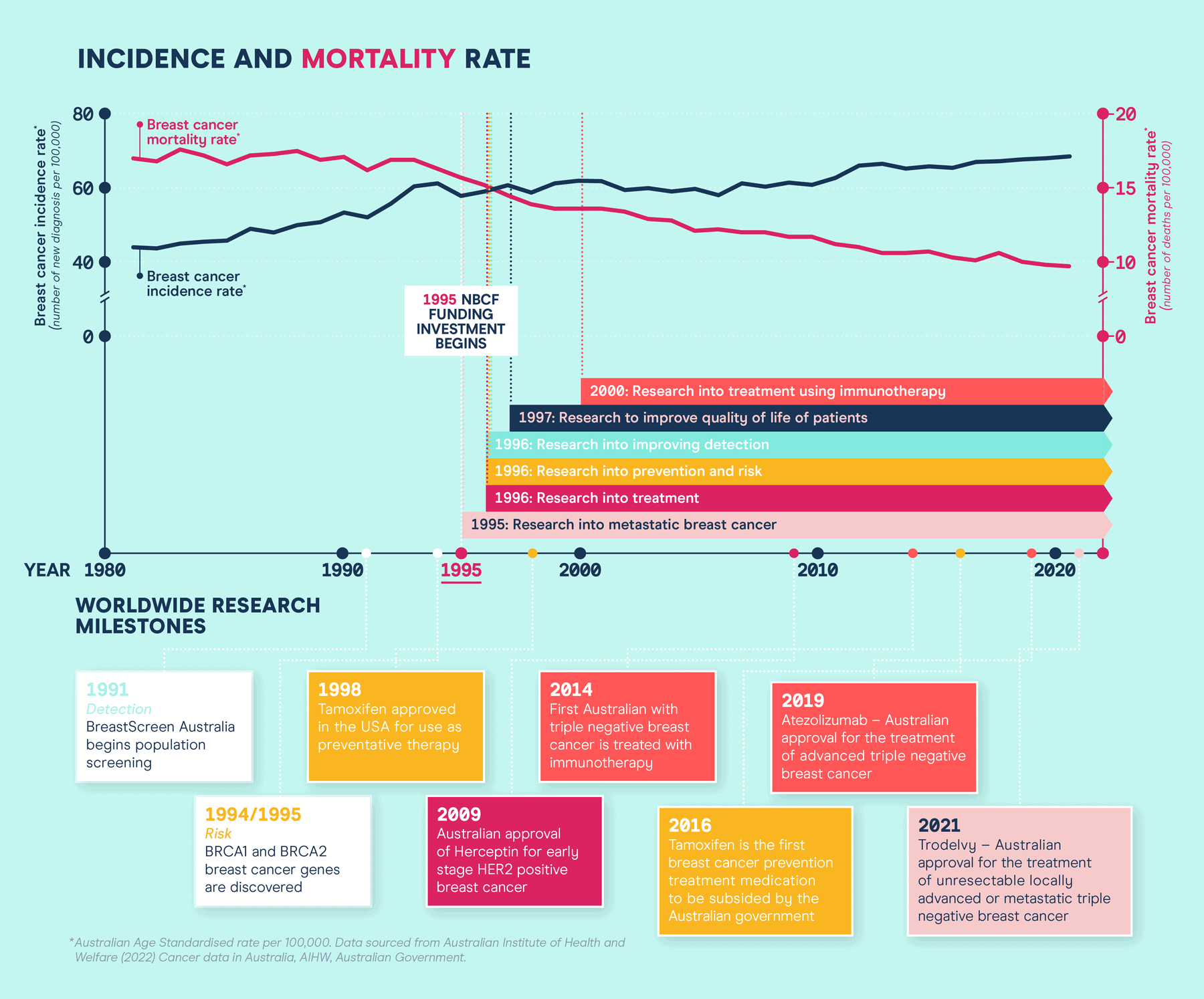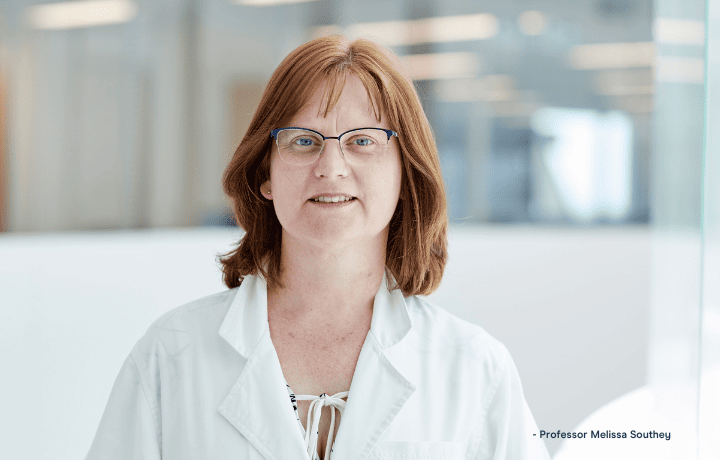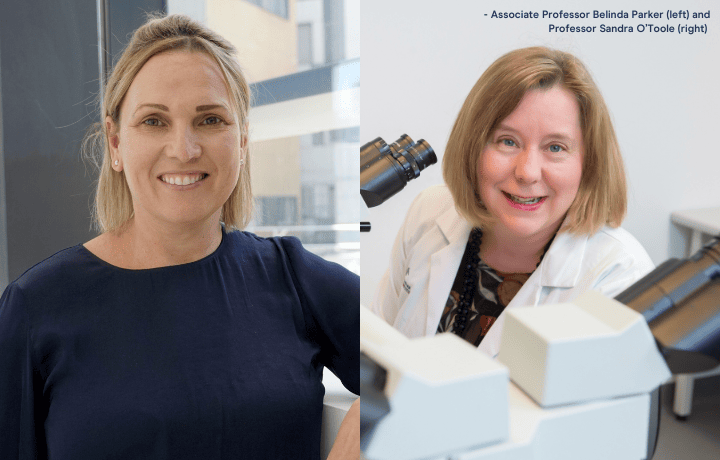Our Breast Cancer Research Achievements
The National Breast Cancer Foundation (NBCF) has funded a broad spectrum of research that has deepened our understanding of breast cancer detection, treatments, risk management.
Learn more about NBCF’s contributions to breast cancer research below:

Old Samples Bring New Answers
With NBCF investment and co-funding from Biobanking Victoria, Professor Melissa Southey and colleagues re-examined biological samples and clinical data from 30,000 women with and without breast cancer dating back to the mid-1990s using new knowledge and techniques.
The team performed targeted sequencing of genes that were potentially linked with breast cancer susceptibility and found new genetic mutations in 1 in 20 of the breast cancer cases that were not identified when the women were originally diagnosed.
Thanks to this NBCF-funded research, the team were able to reach out to the women who provided the samples and give them answers they were seeking for decades.
eviQ, an online cancer genetics resource for health professionals, now recommends the inclusion of sequencing a gene found in Prof Southey’s research in addition to standard BRCA1 and BRCA2 tests.

A Leap Forward in Car T Cell Immunotherapy For Breast Cancer
CAR T cell immunotherapy is a treatment approach that reprograms a patient’s own immune cells to find and destroy cancer cells. While CAR T cell immunotherapy has shown great promise in the treatment of certain blood cancers, it is yet to be proven effective for solid tumours like breast cancer as CAR T cells become exhausted and ineffective.
Associate Professor Paul Beavis has made significant headway into understanding how to overcome CAR T cell fatigue by genetically engineering CAR T cells with DNA sequences that empower them to combat this fatigue and boost anti-tumour immunity.
A/Prof Beavis has been the recipient of NBCF funding since the early stages of his career with fellowships that have accelerated his career development and led to incredible advancements in knowledge. These fundamental discoveries have been crucial to harness the potential of CAR T cell therapy as an effective treatment for breast cancer.

Our Researchers At The Forefront Of Innovation
NBCF-funded researchers Associate Professor Belinda Parker and Professor Sandra O’Toole and their team have developed a new microscope slide technology that could be used to detect cancer cells more accurately in a patient’s tumour sample.
Current imaging techniques are a time-consuming and labour-intensive process and struggle to distinguish early-stage cancer cells from healthy cells.
These new slides were developed using cutting-edge nanotechnology that change the surface of conventional slides so that cells take on a striking colour contrast. This allows early-stage cancer cells to be easily and instantly distinguished from surrounding healthy cells.
These slides promise to make the diagnosis of early-stage breast cancer easier and quicker, as well as reduce any potential uncertainty around early-stage breast cancer detection.

Hear from Professor Alexander Swarbrick on why we need to support breast cancer research